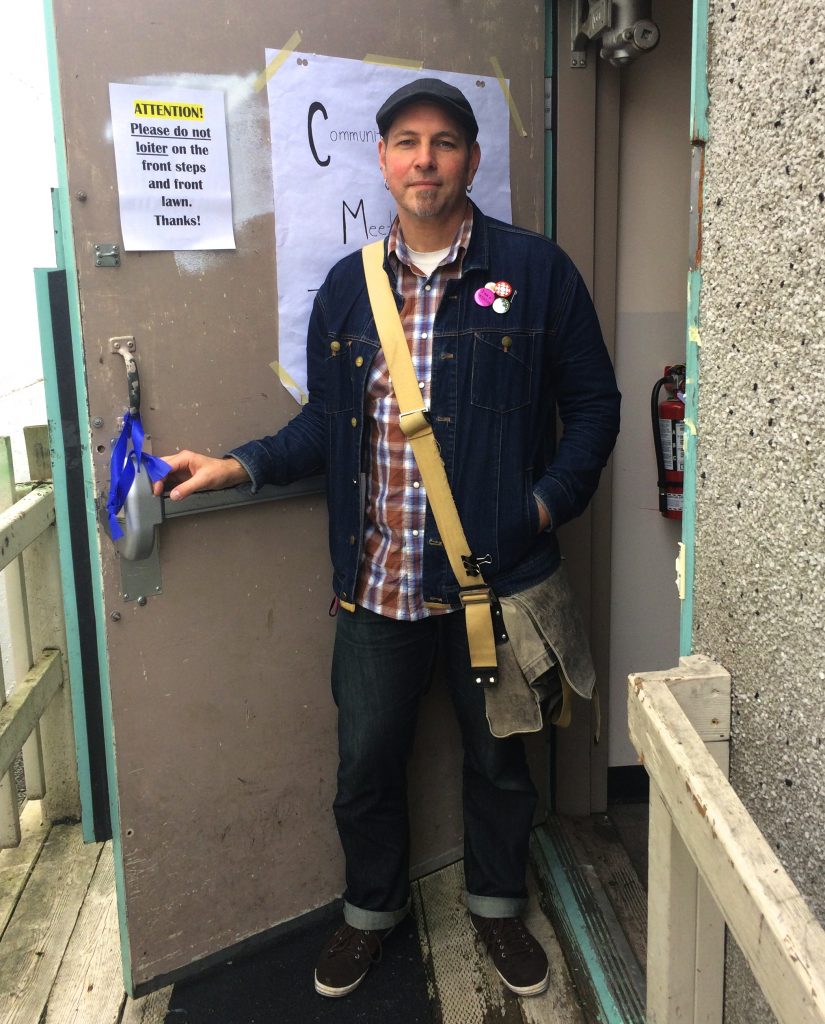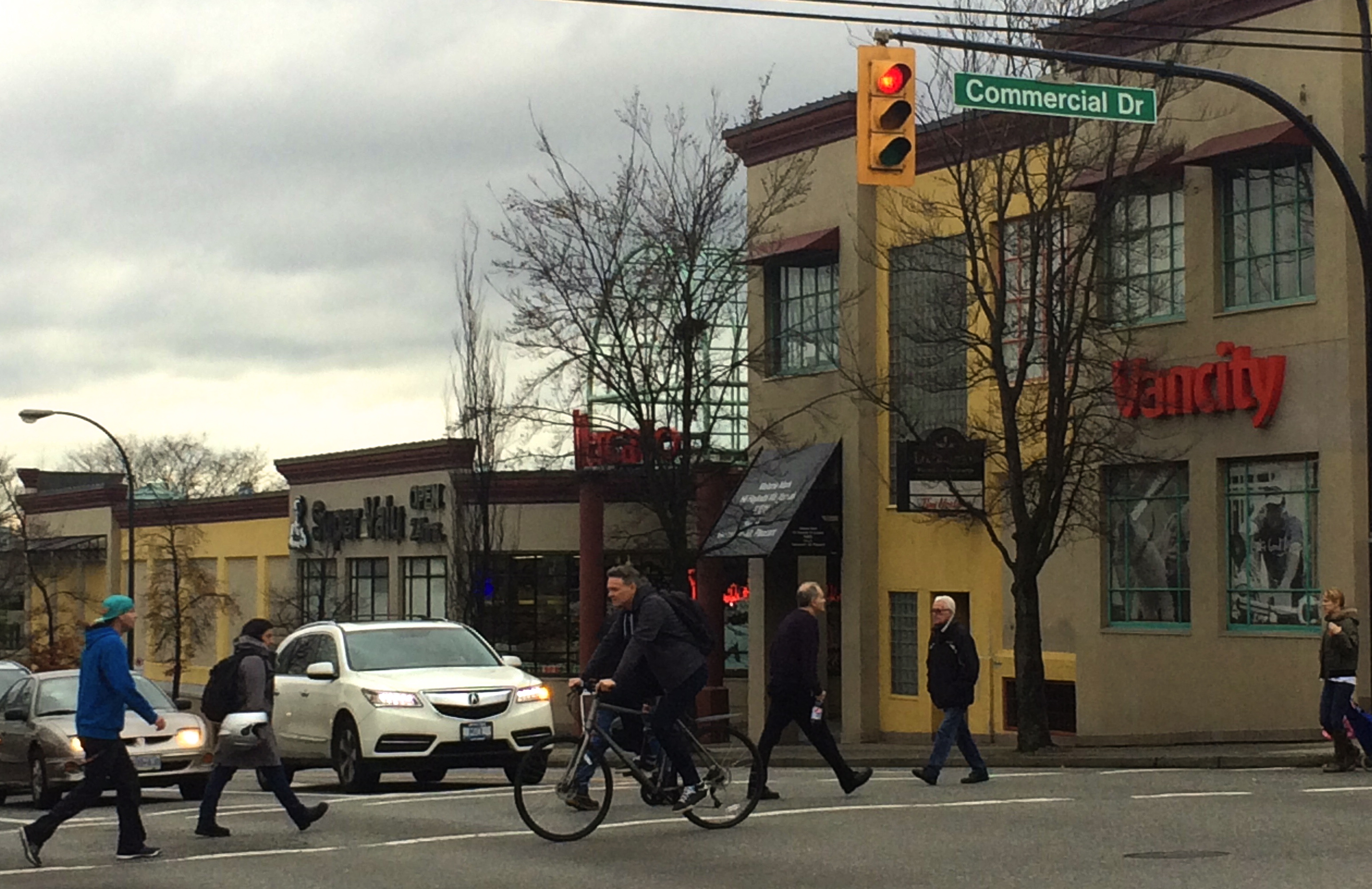Residents at homeless shelter paid to clean up the streets this winter
RainCity will now be able to pay an hourly wage to shelter residents who take part in its annual street-cleaning program
Vancouver’s biggest credit union has donated money to pay homeless-shelter residents around Commercial Drive for cleaning up the streets, a move that many hope will help them connect with the community.
The Vancity Commercial Drive branch donated $1,000 to the RainCity Housing and Support Society in a show of support for the Nov. 15 opening of their temporary winter shelter on First Avenue.
The money offers RainCity a first-time chance to formalize its annual street-cleaning program by paying an hourly wage to the shelter residents who take part. Both the organization and the credit union hope the new program will strengthen the relationship between the shelter residents and the wider community.

“It’s a win-win. The neighbourhood becomes cleaner, the folks doing the clean-up are gaining work experience and generating income, and the initiative shows that we care about the community,” said RainCity communications manager Bill Briscall.
“As great as volunteerism is, these folks make far less money than we do and if we can help in someway that would be swell,” Briscall said.
RainCity staff went door-to-door to businesses in the neighbourhood
In the weeks leading up to the shelter’s opening, RainCity staff and city Coun. Andrea Reimer approached local businesses in the immediate area around the shelter to address any possible concerns.
Briscall said businesses were positive about the shelter’s impact on the homeless population in the community, and Vancity donated the money to welcome residents at the shelter as members of the community.
How long the donation will last depends on how many shelter residents take advantage of the new program.
“We are thinking it will last for sure one month,” Briscall said. The organization is currently talking to Vancity about expanding the program.
A larger donation of $10,000 is under discussion between the credit union and the shelter’s organizers. RainCity has asked Vancity for the larger donation and explained that it would allow them to continue the cleaning project around Commercial Drive into the new year as well as to offer the program at the organization’s other winter shelter on Hornby Street when it opens on Dec.1.

“No concerns” from residents about the shelter
The winter shelter was met with mixed responses upon its reopening.
“I think it’s absolutely fabulous,” said Grandview Woodland Area Council president Dorothy Barkley. The GWAC, a neighbourhood council, represents the interests of residents in the area.
“GWAC had no concerns about the last year’s shelter and has no reason to have any this year,” says Barkley. “Certainly no one has brought any to GWAC’s attention. We have every faith in RainCity’s management and supervision of the project.”
But not everyone in the area agrees with Barkley.
Mark Steele, a local resident and the produce manager at the Super Valu grocery store on First Avenue, said that he and the other managers felt it was poorly managed and that, as a result, the store experienced high volumes of theft.
“It has already started happening this year. A man came into the store, stole $220 worth of meat and ran across the street towards the shelter.”
Steele, who was homeless for three years and spent a year living in shelters in the downtown core, added that neighbourhood sweeps are a good thing if they are volunteer-based.
“[The homeless] can learn to incorporate themselves back into society by being in touch with a community,” he said.
Steele takes issue with the fact that the shelter residents will be paid. He said it would diminish the learning experience.
“I don’t think people should be paid in cash for cleaning up the street,” said Steele. “That money could be used for other things. My own experience with homelessness and addiction is getting cash is not always a good thing.”
He added that he would much rather see RainCity use the donation to fund other mentorship programs like job training.
